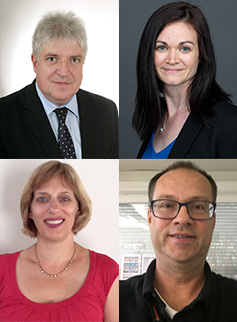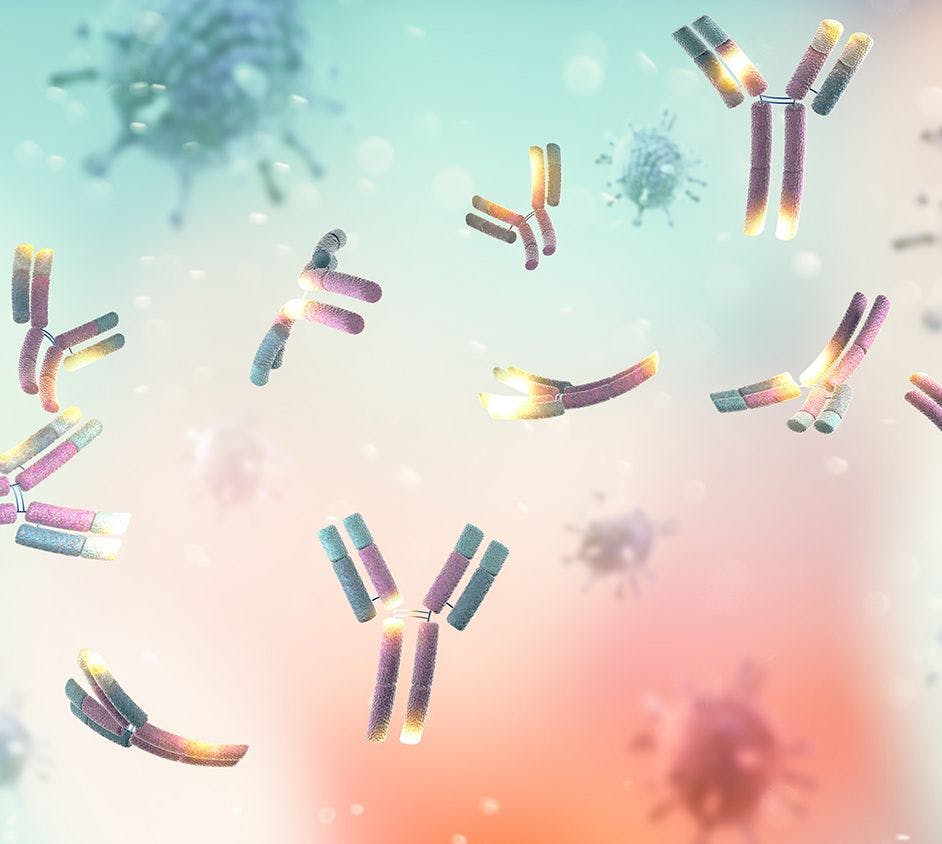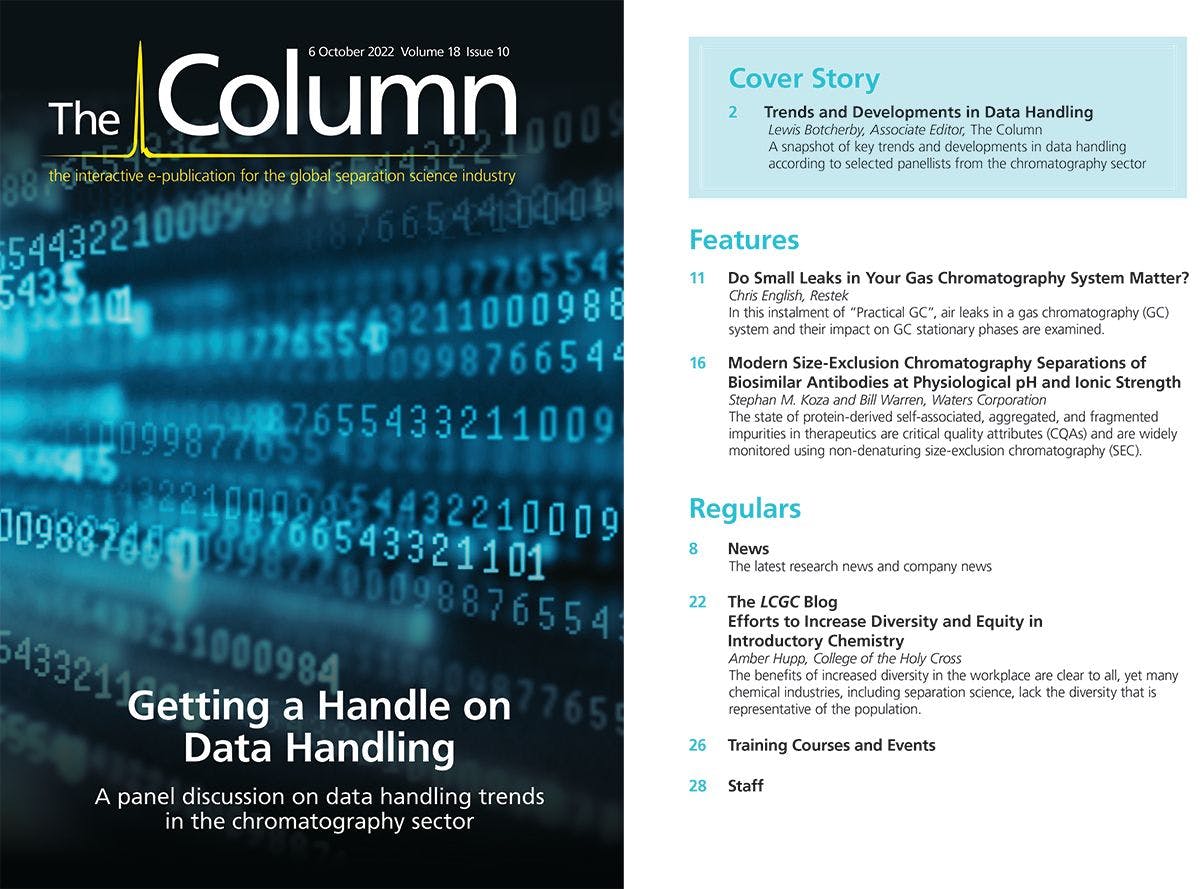Peter Schoenmakers Wins ACS Award in Chromatography
Peter Schoenmakers
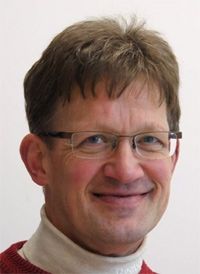
Peter Schoenmakers of the University of Amsterdam is the 2022 recipient of the American Chemical Society (ACS) Award in Chromatography. The award was presented to him at the ACS fall meeting in Chicago on August 23.
Schoenmakers retired in June from his post as a professor of chemistry at the University of Amsterdam, where he was also the director of the van ‘t Hoff Institute of Molecular Science (HIMS) and a founder and the education director of a public-private-partnership organization on analytical chemistry called “Comprehensive Analytical Science and Technology (COAST).”
Schoenmakers has made significant contributions to the field of chromatography, from his early publications on the theory of gradient elution in reversed-phase chromatography and its optimization, to his work to advance the analysis of polymers, and to his pioneering and ongoing work in developing two- and three-dimensional liquid chromatography (LC) methods.
Schoenmakers received his PhD under Professor Leo de Galan in Delft and Professor Barry Karger in Boston, Massachusetts. He then he worked for Philips in Eindhoven (The Netherlands) and for Shell in Amsterdam and in Houston, Texas. While at Shell, he became a part-time professor in Polymer Analysis at the University of Amsterdam in 1998, and a full-time professor in 2002.
Schoenmakers has received multiple awards throughout his career. Recent international awards include the American Chemical Society (ACS) Award in Chromatography (2022); the Dal Nogare Award (2019), the Fritz-Pregl Medal (2018), the CASSS Award (2015), the Csaba Horváth Memorial Award (2015), the John H. Knox Medal of the RSC (2014), the Martin medal of the Chromatographic Society (2011), and the EAS Award for Excellence in Separation Science (2010). In 2016 he received a European Research Council (ERC) Advanced grant of 2.5 million Euros for the “Separation Technology for A Million Peaks” (STAMP) project.
In June, Schoenmakers was named a “Knight of the Order of the Netherlands Lion.” This royal commendation is one of the oldest and highest civil honors in the Netherlands. King Willem I established the Order in 1815. Candidates who have made an exceptional contribution to society, especially in science, art, sports, and literature, are eligible for this honor.
He also has served as an editor of the Journal of Chromatography A and is a member of the Editorial Advisory Board of LCGC.
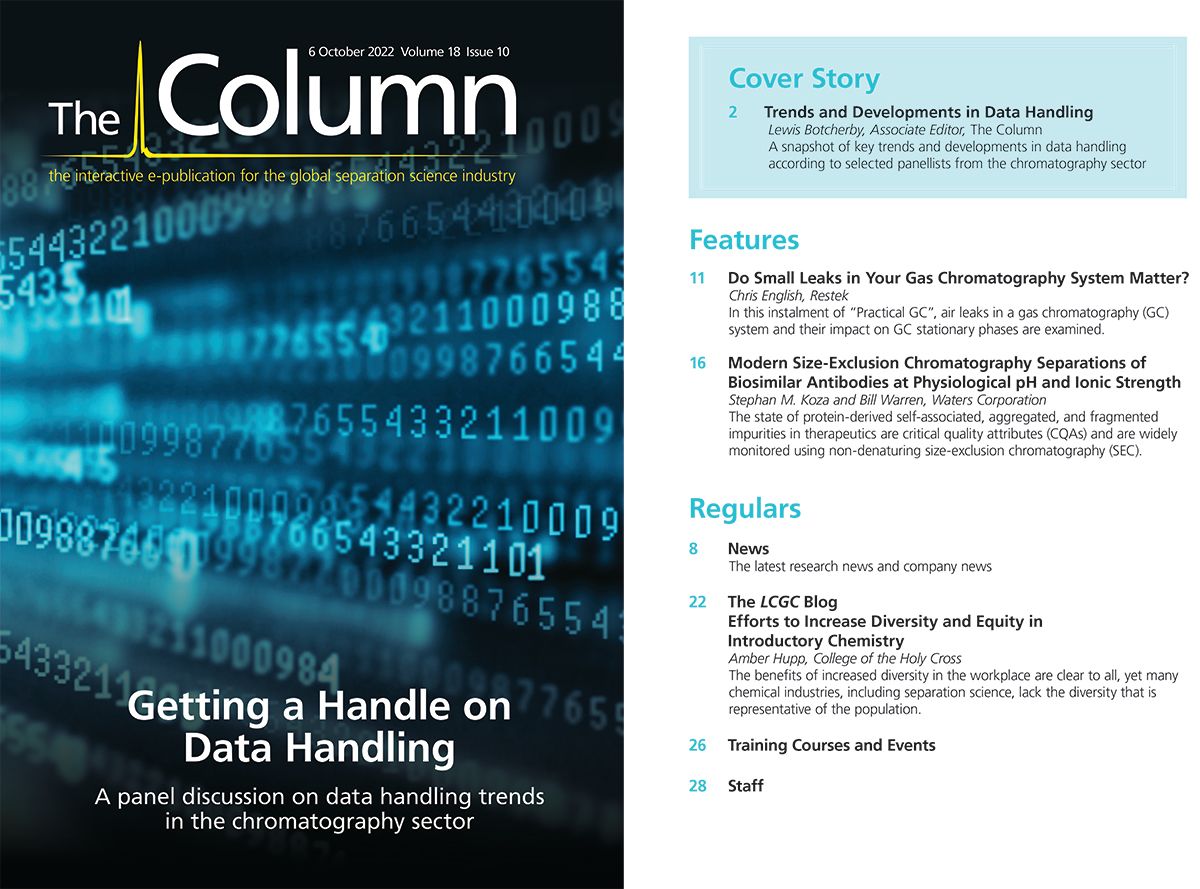
A Matrix-Matched Semiquantification Method for PFAS in AFFF-Contaminated Soil
Published: April 14th 2025 | Updated: April 14th 2025Catharina Capitain and Melanie Schüßler from the Faculty of Geosciences at the University of Tübingen, Tübingen, Germany describe a novel approach using matrix-matched semiquantification to investigate per- and polyfluoroalkyl substances (PFAS) in contaminated soil.
Silvia Radenkovic on Building Connections in the Scientific Community
April 11th 2025In the second part of our conversation with Silvia Radenkovic, she shares insights into her involvement in scientific organizations and offers advice for young scientists looking to engage more in scientific organizations.

